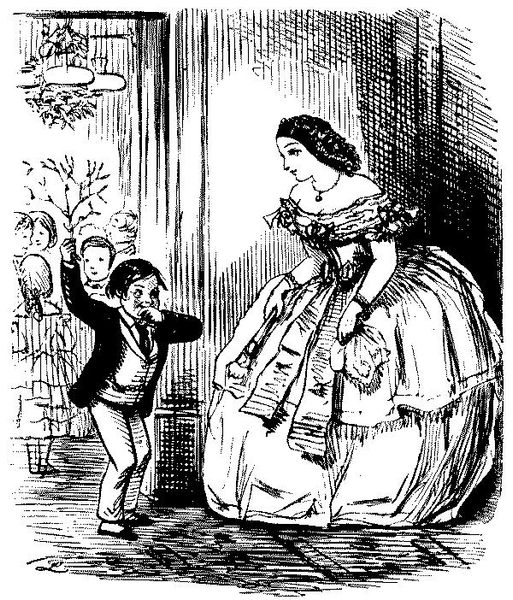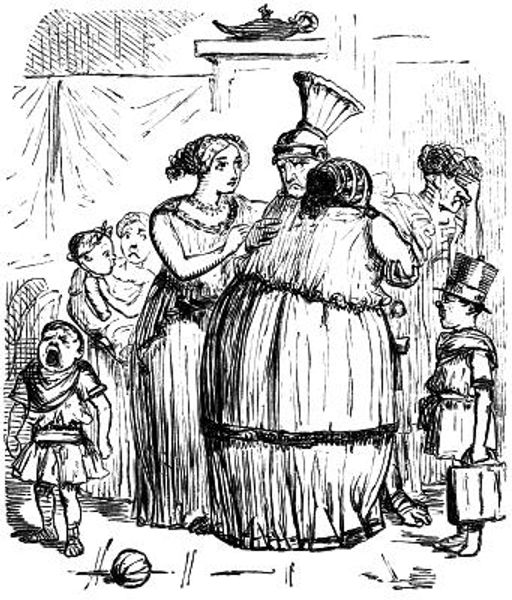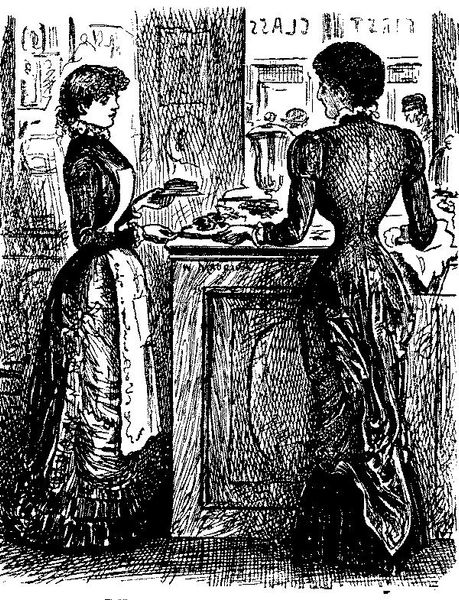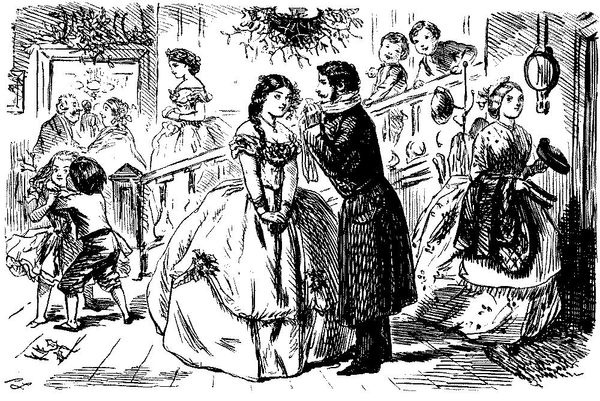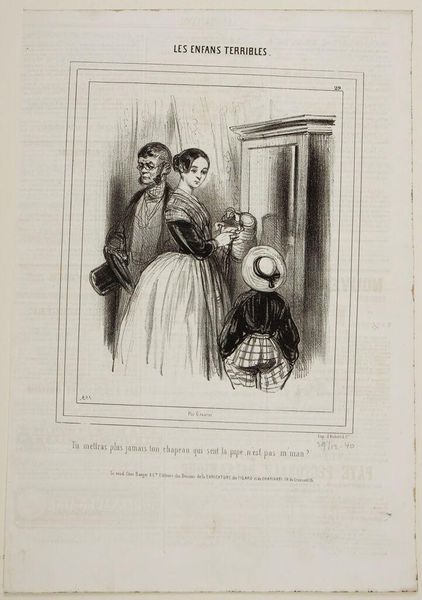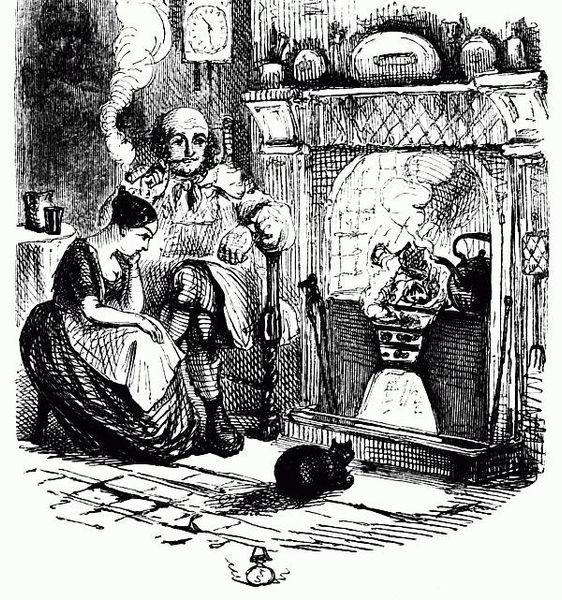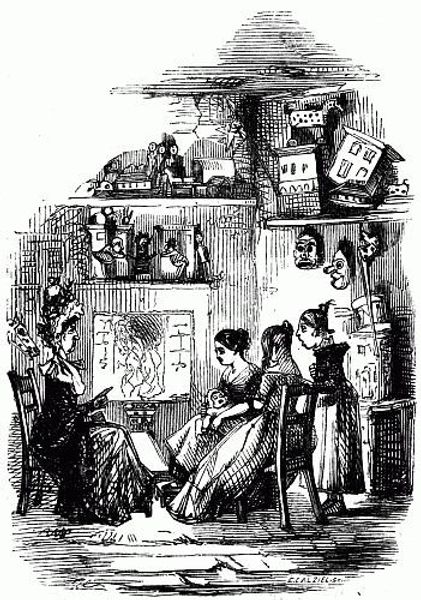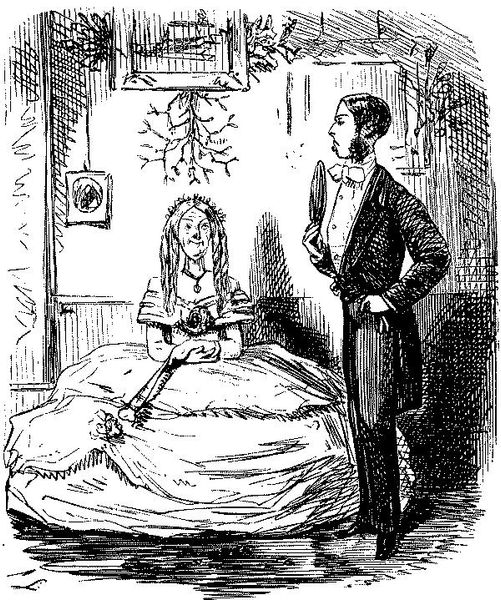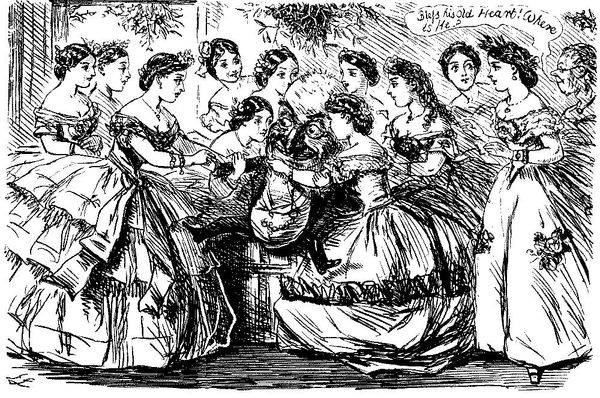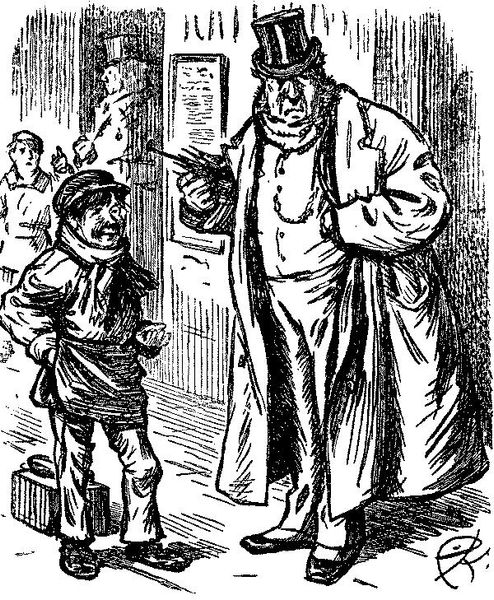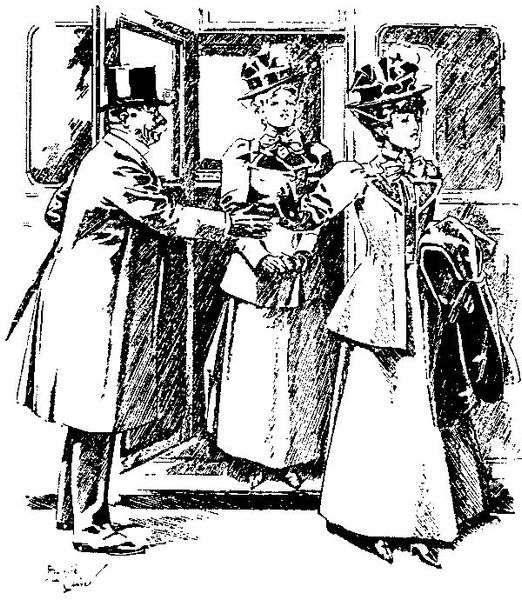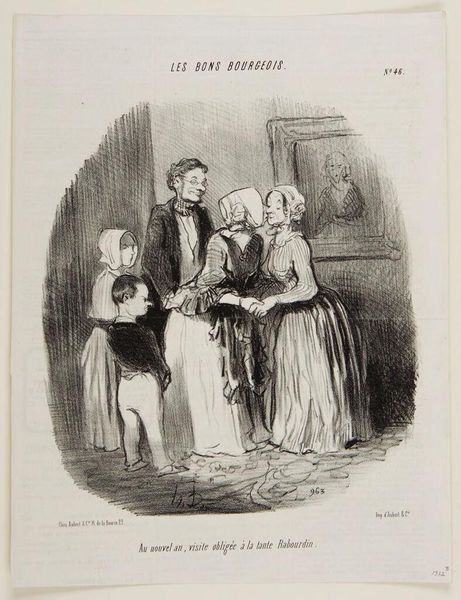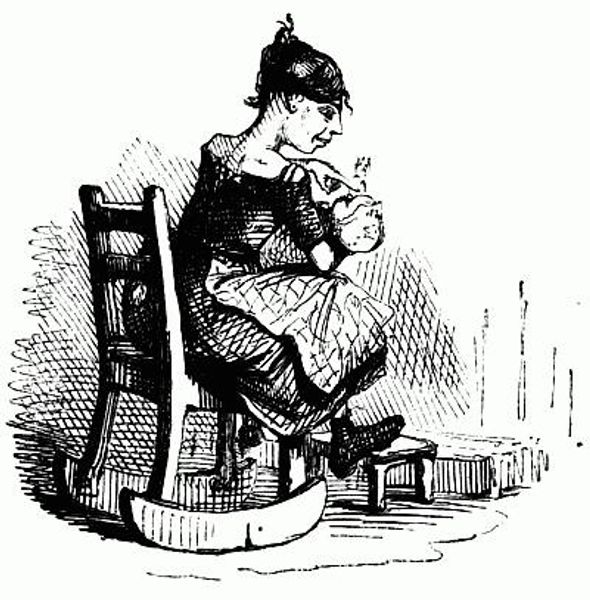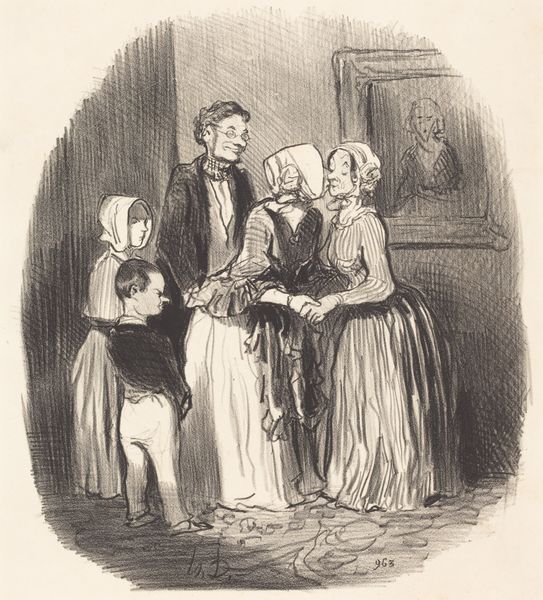
drawing, ink, pen
#
portrait
#
drawing
#
line-art
#
comic strip sketch
#
webcomic
#
narrative-art
#
pen illustration
#
fictional-character
#
junji ito style
#
figuration
#
ink line art
#
linework heavy
#
ink
#
manga style
#
line
#
pen
#
comic style
#
genre-painting
#
graphic novel art
Copyright: Public domain
Editor: Here we have "Juvenile Etymology", a pen and ink drawing by John Leech. There's a quiet domesticity to it, a scene with two young girls and a woman, presumably their mother, near a fireplace. What can you tell me about it? Curator: This piece speaks volumes about the prescribed roles within a Victorian household. Notice how the mother’s back is turned, placing her as a central, yet almost faceless figure. The fireplace, traditionally a symbol of domestic warmth and stability, is meticulously adorned, emphasizing the performance of domesticity expected of women at the time. Editor: So, you see it as a commentary on the restrictions placed on women? Curator: Absolutely. Leech often used his satirical pen to subtly critique social norms. The “etymology” in the title hints at the children's development, their upbringing, their encoding into these social roles. Look at the girls’ posture and placement: one attentively listening, the other perhaps more skeptical or challenging. What could that dynamic suggest? Editor: Maybe one is conforming while the other is resisting the prescribed roles, even at a young age. Is that what you mean? Curator: Precisely. Consider how even leisure, symbolized by the ball on the floor, feels staged, part of this constructed environment. This isn't simply a portrait of a family, it's a stage where expectations are being both reinforced and, potentially, questioned. The setting creates an echo that highlights how constraints are imposed, inherited, resisted. It makes one wonder about power dynamics and the narratives being instilled and potentially subverted. Editor: That's a fascinating way to look at it. I initially saw a simple, charming scene, but now I recognize layers of social commentary embedded within. Curator: Exactly! By looking at art through a lens of gender, class, and power, we reveal deeper meanings and engage in a richer dialogue about history and our own contemporary lives.
Comments
No comments
Be the first to comment and join the conversation on the ultimate creative platform.
